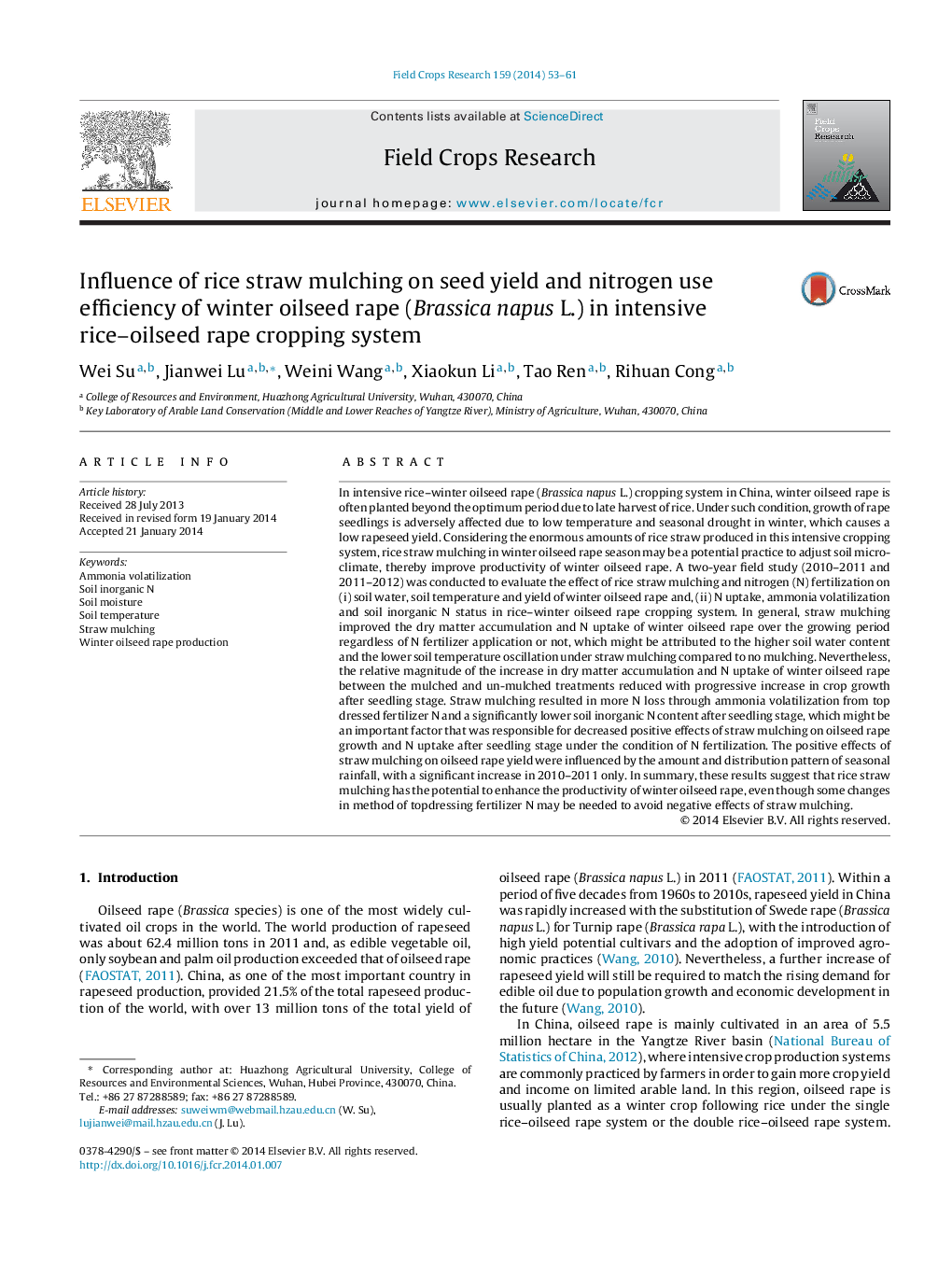| Article ID | Journal | Published Year | Pages | File Type |
|---|---|---|---|---|
| 4510128 | Field Crops Research | 2014 | 9 Pages |
•Straw mulching improved soil water and temperature conditions.•Straw mulching increased dry matter and N uptake of oilseed rape at seedling stage.•Effects of straw mulching on oilseed rape growth decreased after seedling stage.•Yield response of oilseed rape to straw mulching was different in two seasons.•Straw mulching led to more topdressing N loss through ammonia volatilization.
In intensive rice–winter oilseed rape (Brassica napus L.) cropping system in China, winter oilseed rape is often planted beyond the optimum period due to late harvest of rice. Under such condition, growth of rape seedlings is adversely affected due to low temperature and seasonal drought in winter, which causes a low rapeseed yield. Considering the enormous amounts of rice straw produced in this intensive cropping system, rice straw mulching in winter oilseed rape season may be a potential practice to adjust soil micro-climate, thereby improve productivity of winter oilseed rape. A two-year field study (2010–2011 and 2011–2012) was conducted to evaluate the effect of rice straw mulching and nitrogen (N) fertilization on (i) soil water, soil temperature and yield of winter oilseed rape and, (ii) N uptake, ammonia volatilization and soil inorganic N status in rice–winter oilseed rape cropping system. In general, straw mulching improved the dry matter accumulation and N uptake of winter oilseed rape over the growing period regardless of N fertilizer application or not, which might be attributed to the higher soil water content and the lower soil temperature oscillation under straw mulching compared to no mulching. Nevertheless, the relative magnitude of the increase in dry matter accumulation and N uptake of winter oilseed rape between the mulched and un-mulched treatments reduced with progressive increase in crop growth after seedling stage. Straw mulching resulted in more N loss through ammonia volatilization from top dressed fertilizer N and a significantly lower soil inorganic N content after seedling stage, which might be an important factor that was responsible for decreased positive effects of straw mulching on oilseed rape growth and N uptake after seedling stage under the condition of N fertilization. The positive effects of straw mulching on oilseed rape yield were influenced by the amount and distribution pattern of seasonal rainfall, with a significant increase in 2010–2011 only. In summary, these results suggest that rice straw mulching has the potential to enhance the productivity of winter oilseed rape, even though some changes in method of topdressing fertilizer N may be needed to avoid negative effects of straw mulching.
